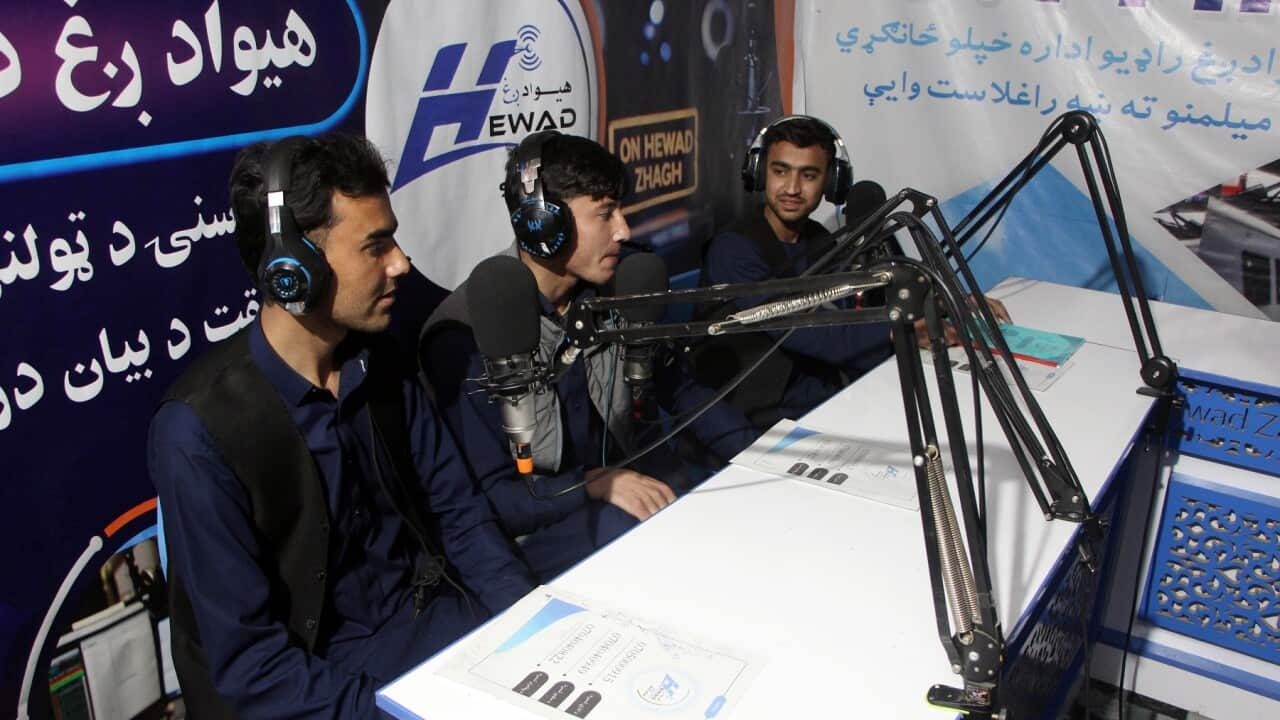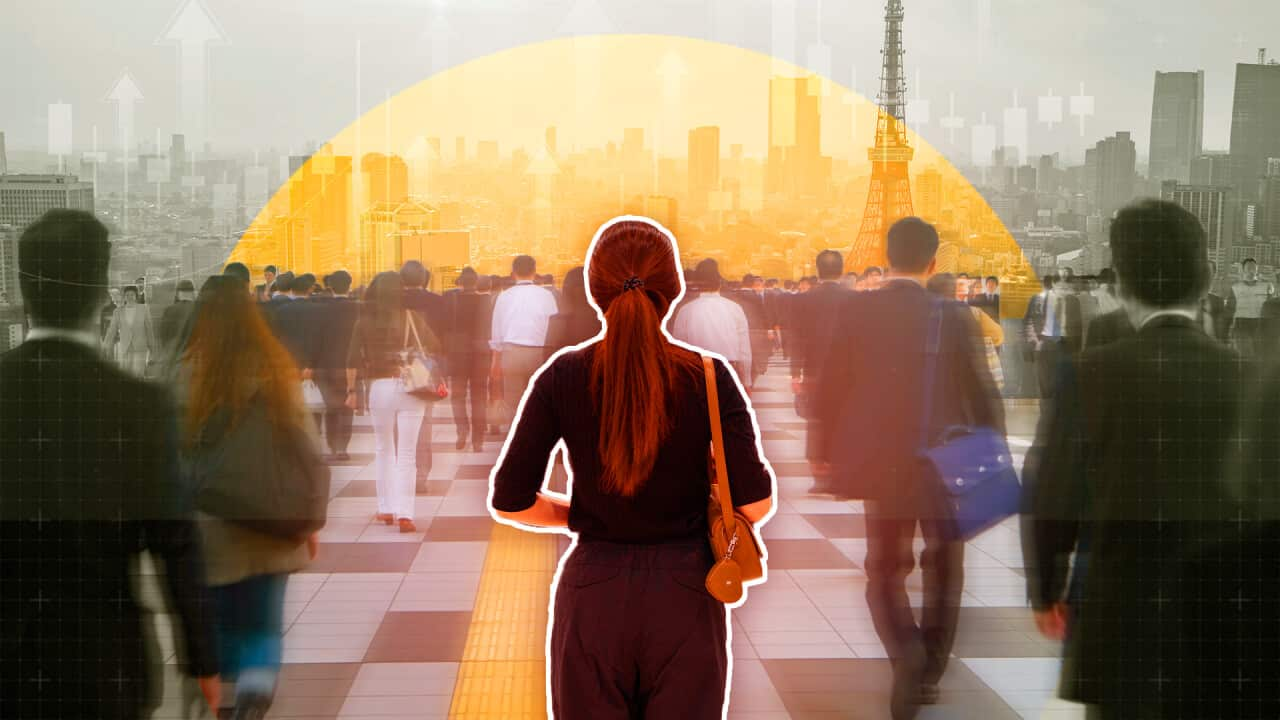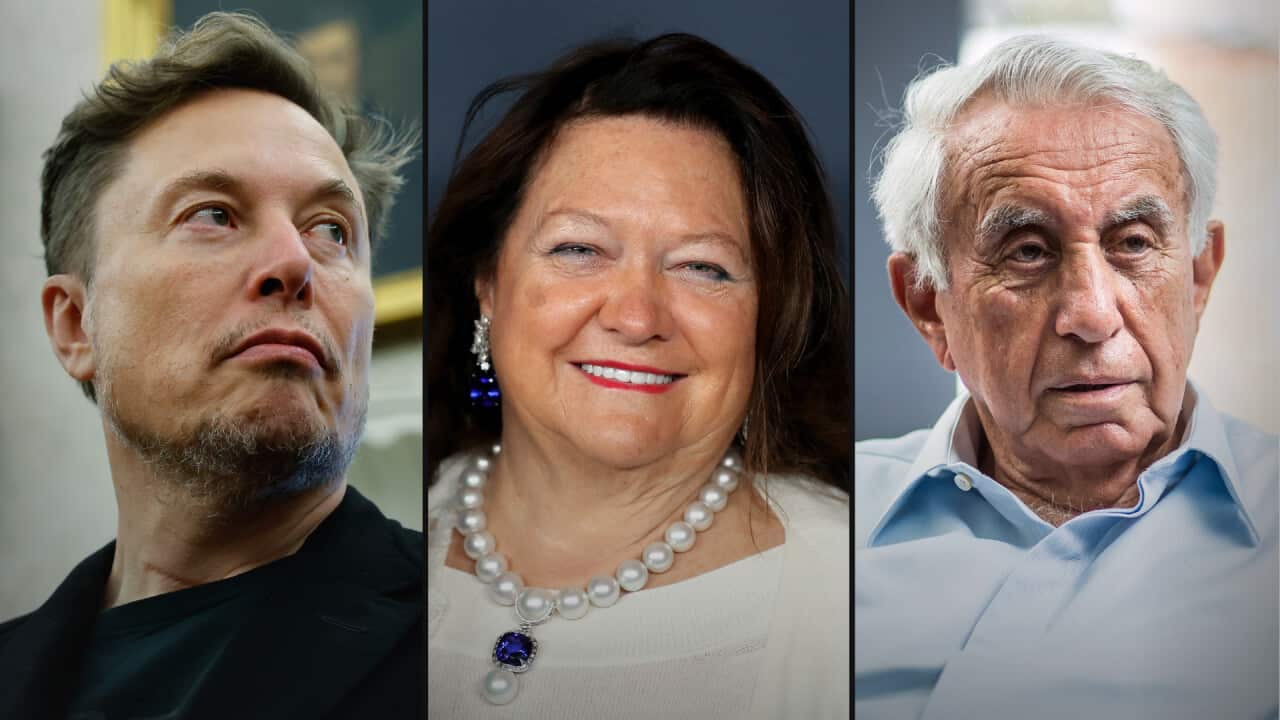Warning: this story contains elements that may distress some people.
Listen to Australian and world news, and follow trending topics with SBS News Podcasts.
TRANSCRIPT
For many people, reporting sexual harassment at work is not as easy as simply making a complaint.
While laws are in place to prevent and eliminate sexual harassment at work, experts and victim survivors say there are still significant gaps between policy and practice.
Now, the Australian Human Rights Commission says more needs to be done to support those most vulnerable to harassment at work.
Dr Anna Cody is Australia's Sex Discrimination Commissioner.
She tells SBS that for real change to occur, leaders have to take action.
"What we need to see is leaders stepping up. So that's CEOs, directors of boards, managers, supervisors, but everyone within a workplace to make sure that people are safe and respected at work. And how we can then create a culture where it's not okay to not be respectful within a workplace. We need to ensure that our workplaces are diverse, that there is cultural diversity, people with disability at all levels within an organisation."
The Commission's new report, called Speaking From Experience, aims to address gaps in understanding about what workers from diverse backgrounds think needs to change to make workplaces safer.
Sexual harassment at work is a complex matter and extends beyond gender discrimination, occurring most often to those who experience various forms of overlapping disadvantage or discrimination.
"Harassers definitely do choose who they are harassing though they'll choose the person who's on a temporary visa or who really needs this job and who can't afford to let it go. So they use that vulnerability as a way of protecting themselves. So workplaces and bosses and supervisors need to be conscious of that, particularly where there are systems in place or locations within a workplace. You can create safety within a workplace through systems as well as through the way in which you deal with the person who's experienced workplace sexual harassment."
The Australian Human Rights Commission says one in three Australians report being sexually harassed at work.
This figure was far higher for some, with almost half [[48%]] of people with a disability experiencing harassment at work and 56 per cent of Aboriginal and Torres Strait Islander people.
Those in insecure employment, LGBTIQ+ people, culturally or linguistically diverse people, and people with a disability, are not only more likely to experience sexual harassment, but less likely to feel safe enough to report it.
Prabha Nandagopal is an award-winning human rights lawyer and founder of Elevate Consulting Partners, a firm that works with businesses to create safe, respectful and inclusive workplaces.
She says leaders must be able to address their own blind spots and centre the voices of those affected.
" We know that sexual harassment isn't just about gender, it's about power. And people who do sit at that intersection of racism, sexism, ableism, for example, are often more exposed and less protected. And as a woman of colour, I've seen how these layers of discrimination compound when it comes to leaders, it starts with really listening even when it's uncomfortable. So I'm briefing board directors and leaders and middle management almost every day in my day job, and it's very easy for me to talk about workplace sexual harassment. But the moment you start talking about racism in the workplace, that's when there's a bit of discomfort."
While acknowledging changes to the national approach over the past decade and the greater responsibility placed on employers, experts say policy and practice gaps still exist.
Drawing from the experience of over 300 victim-survivors of workplace sexual harassment, the report emphasises the need for people to feel safe enough to report.
In 2022, a legal obligation called Positive Duty was added to the Sex Discrimination Act.
Under the obligation, employers have a duty to eliminate and prevent, as far as possible, unlawful acts of sexual harassment at work.
Prabha Nandagopal says she supports recommendations to impose civil penalties for companies failing to comply.
"The positive duty regime under the Federal Sex Discrimination Act doesn't have civil penalties attached to it. So if someone doesn't comply with the commission's compliance notice that organization can be taken to the federal court. Where the federal court can make any order it sees fit. But unlike say your work health and safety regime, the commission's enforcement powers are quite limited."
Workplace sexual harassment also extends beyond the physical workplace: it's not only harmful psychologically but can isolate individuals.
Dr Shih Joo Tan is a professor of criminology at the University of Melbourne and has co-authored a series of reports on the experiences of migrant and refugee women with workplace harassment.
She says aside from uncertainty around their rights, people from diverse cultural backgrounds are often dismissed as misunderstanding Australian culture.
"For example, some migrant and refugee women might be on an employer-sponsored visa, which would sit very hard for them to even report or think about reporting because they would then have to consider the consequences that it could have on their visa status or which also links to their right to remain in a country. So there's that. And also the other issue that was also mentioned in the report was that a lot of times when they do try to say that this is what happened to me, or this person had said this really horrible thing to me, often the response that they could get is that this is just a joke or this is part of the Australian culture, learn how to, you just need to learn Australian culture in that way. So it was seen as a problem on their part that there was a lack of understanding."
Another issue raised in the report was the lack of knowledge around different forms of harassment.
Often mistaken as only the most blatant forms of harassment, sexual harassment in the workplace can be covert and is often dismissed as something more lighthearted.
Dr Anna Cody says without proper understanding of what sexual harassment is, employers can't properly address it.
"There have been significant changes over the last decade coming out of the Me Too movement and a greater understanding of workplace sexual harassment. But we still need to build our understanding of what constitutes workplace sexual harassment. So while many people understand touching, unwanted sexual touching, to be workplace sexual harassment, we need to think about messaging of sexual content or of leering or staring at someone in a sexual way or suggesting sexual acts with that person. All of those things also constitute workplace sexual harassment."
The report offers policymakers and organisations eleven key recommendations.
All of the recommendations centre around reducing barriers - barriers to information, to safety, to being heard, to accessing support, and to justice and accountability.
Dr Tan says while many people never make a formal complaint, there were certain things people say made it easier when they did.
"In the very first instance, most of them felt comfortable and secure with their direct supervisors. So there was immediate support from management level. The other thing was also assurance that this would not impact on their visa status or their financial security, or that they would not have to face small talk in the office, which was another thing that women had talked about as impacting on their mental wellbeing and things that they would consider as impacting on their positions. They felt like they were punished on a social level for speaking up or for complaining."]]
Ms Nandagopal says employers need to take the time to understand the problems specific to their workplace.
"So firstly, it's about really understanding the nature and prevalence of sexual harassment in their workplace by speaking to their workers and consulting, particularly those from marginalised groups, not only about what they're experiencing, but asking what they need to feel safe. Then investing in real quality education and training for leaders and workers. And then ensuring their policies and reporting processes are trauma informed and culturally safe. So going beyond that tick-a-box approach to really investing in quality effective measures to prevent and respond to sexual harassment."
Commissioner Anna Cody says the landmark report is a crucial final step in the Commission's Respect at Work agenda.
And while there is still a long way to go as the recommendations are considered, she says it's important to appreciate the work of victim survivors in telling their stories.
"The people that we heard from, how strong and determined they were in trying to make our workplaces fairer and safer for everyone, that they wanted to share their stories so that we could act on them and ensure that other people didn't have to go through what they had gone through."
If you or someone you know wants to talk about sexual harassment, call 1800RESPECT on 1800 737 732 or visit www.1800RESPECT.org.au. In an emergency, call 000.













